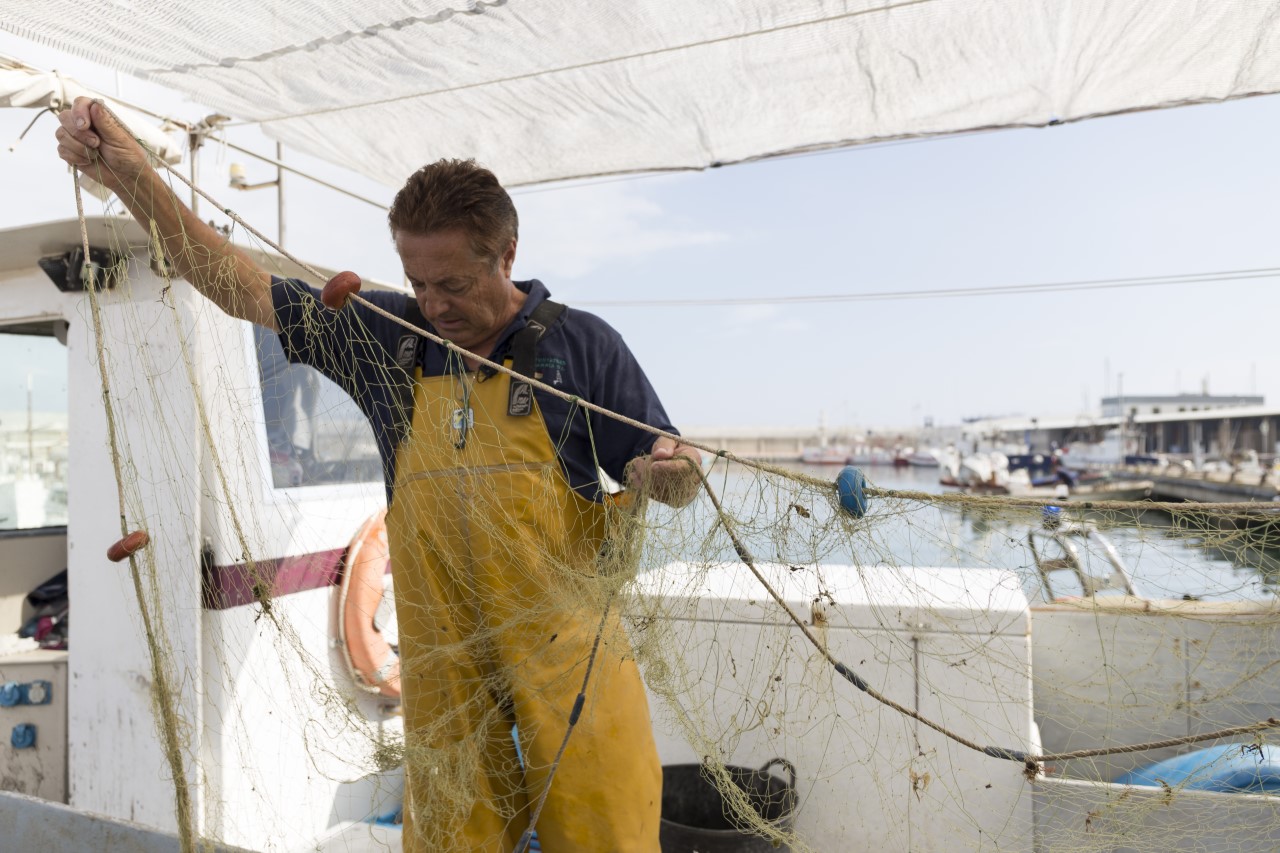LIFE ECOREST: marine restoration in recovering degraded ecosystems
The LIFE ECOREST project highlights the role of marine restoration in recovering degraded ecosystems
- This initiative aims to restore nearly 30,000 hectares of deep-sea habitats in Catalonia, in an area of high ecological value along the coastline of Barcelona and Girona, with the active participation of the fishing sector.
- Within this framework, MITECO's Biodiversity Foundation, a partner in the project, organised an event to highlight the importance of marine restoration as a tool for the regeneration of biodiversity, at which the actions planned to achieve this were also presented.
- The project, which is coordinated by the ICM-CSIC, has as partners, in addition to the Biodiversity Foundation, the Federation of Fishermen's Guilds of Girona, the IRBio-University of Barcelona and WWF Spain.

17 March 2022- Marine restoration, an ally for the recovery of our seas, was the protagonist of an event at which the LIFE ECOREST project was presented, which aims to restore nearly 30,000 hectares of deep-sea habitats in Catalonia with the active participation of the fishing sector.
The event was attended by the Director General of Biodiversity, Forests and Desertification of the Ministry for Ecological Transition and the Demographic Challenge (MITECO), María Jesús Rodríguez de Sancho, who highlighted the role of this tool as "an effective instrument for reversing the degradation of ecosystems, mitigating and favouring adaptation to climate change and protecting biodiversity for the benefit of people, the climate and the planet".
In his speech, Rodríguez de Sancho also reaffirmed Spain's commitment to progress in the conservation and recovery of marine ecosystems and detailed some of the Government's main actions in this area, such as the National Strategy for Green Infrastructure and Ecological Connectivity and Restoration, as well as the planned investment of more than 26 million euros for the restoration of marine habitats, with the support of funds from the Recovery, Transformation and Resilience Plan.
In relation to the LIFE ECOREST project, the Director General for Biodiversity, Forests and Desertification highlighted as one of its main values the importance of sectoral cooperation, "essential for making progress in protecting our seas and our resources". The project relies on close collaboration between the scientific community, the fishing sector and different administrations.
The event was also attended by the Director General of Sustainable Fisheries of the Ministry of Agriculture, Fisheries and Food, Isabel Artime, who highlighted the role of the fisheries sector in marine conservation projects; and the Deputy Director General of Fisheries and Aquaculture of the Generalitat of Catalonia, Itziar Segarra, who discussed the involvement and importance of the fisheries sector in the conservation of marine biodiversity in Catalonia.
BENEFITS OF MARINE RESTORATION
For their part, the project partners have shown during the event the benefits of marine restoration and the importance of marine reserves to regenerate habitats and key species such as corals and gorgonians, which act as architects of the seabed.
Specifically, Josep-Maria Gili, professor at the CSIC's Institute of Marine Sciences (ICM-CSIC), the organisation coordinating the project, explained that active restoration is "a great opportunity to accelerate the recovery of habitats that also favour the recovery of lost ecosystem functions". In this sense, he highlighted the innovative role of this project "both for the methodology used and the large spatial area in which it is developed", as well as for the close collaboration between sectors.
Cristina Linares, professor of ecology at the Faculty of Biology and the Institute for Research on Biodiversity (IRBio) of the University of Barcelona, focused her speech on corals and gorgonians, two of the key species in this project, and their fundamental role in the entire ecosystem. "These species act like trees in forests and offer shelter to a large number of species. Therefore, their degradation leads to the loss of important ecosystem functions and services", he warned.
Laura Recasens, a researcher in the ICM-CSIC's Marine Resources Department, discussed the importance of reserves in the regeneration of fishery resources and the recovery of ecosystems. "Marine protected areas are management tools to recover biodiversity and contribute to the conservation and recovery of habitats damaged by the impact of fishing," she explained.
The fishing sector was represented at the event by Antoni Abad, president of the Federation of Fishermen's Guilds of Girona. Abad emphasized the work carried out by the sector in helping marine restoration and the "important collaboration with all the project partners in order to successfully carry out the planned actions".
Finally, José Luis García, head of WWF Spain's marine programme, stressed the need to involve society in order for restoration to be successful through participatory governance processes. "It is essential to know their perception, their interests and the knowledge they can contribute to ensure acceptance, involvement and, ultimately, the long-term viability of the proposed restoration", he concluded.
AREA OF ACTION
In the project's area of action, along the coastline of Barcelona and Girona, it is estimated that more than 90% of the seabed between 50 and 800 metres deep shows signs of degradation, which hinders the regeneration of natural resources. This area is considered a point of great ecological importance due to the high concentration of endangered, threatened or vulnerable species, including corals and gorgonians.
Therefore, until 2026, the programme of actions of the LIFE ECOREST project will seek to improve the conservation status of deep-sea habitats and demonstrate the effectiveness of participatory management in the fisheries sector.
This initiative, which is coordinated by the ICM-CSIC, has as partners the Federation of Fishermen's Guilds of Girona, the Biodiversity Foundation of the Ministry for Ecological Transition and the Demographic Challenge, the University of Barcelona and WWF Spain, as well as the financial contribution of the European Union's LIFE Programme.


Source:LIFE ECOREST_F.Biodiversitat
